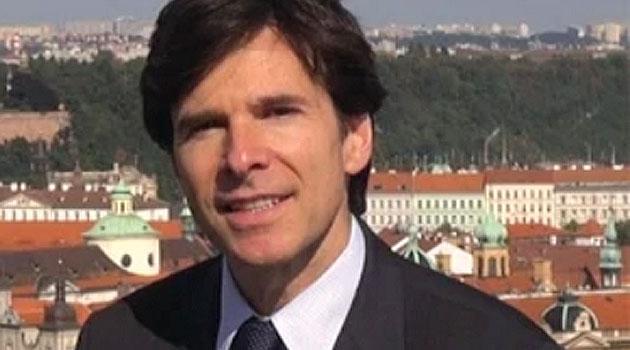Dža Devleha, or “Be with God”, is what is said in the Romanes language to somebody who is departing. On Friday, 20 January, the Ambassador of the United States of America to the Czech Republic, Andrew H. Schapiro, ended his term.
The news was mentioned in the online and print media and on social networks here. Why are so many people remembering him?
Andrew H. Schapiro was an exceptional ambassador who was not afraid to stand up against injustice and to do anything he could if he was convinced it was correct. He was not afraid to stand up for the vulnerable in our society, and the embassy supported various minorities – LGBT people, refugees, and also Romani people.
I have several memories of the former US ambassador that I would like to share with you. The first is from last April, when we traveled to the town of Kadaň, acompanied by the then-Human Rights Minister, Jiří Dienstbier.
The program included a visit to an excluded locality where Romani people live. When we got out of the car, a couple of Romani women and their children were standing outside on the street.
Mr Schapiro headed over to greet them and to ask them how they were doing. The women were embarrassed and began disappearing indoors.
I called out to them in Romanes that they shouldn’t be embarrassed, and in order to win their trust, I told them we would interpret everything for them. Mr Schapiro looked at me and said “They’re embarrassed.”
He precisely comprehended what was going on. He then began speaking with the Romani children who had remained outside about how they were, how things were going in school, and encouraged them to follow their dreams.
Another incident that was surprising for me happened in Broumov during the ambassador’s visit there last May. He wanted to meet with people living outside of Prague and he enjoyed talking with them about their lives, about how they were doing and what was happening in their communities.
We visited an underground music club there, the Eden, and the ambassador was present as a passionate debate was churned up between a non-Romani local resident who had signed Charter 77 during communism and a Romani teacher about the Czech term “gypsy” (cikán), which the former dissident considered a common word and the Romani teacher considered abusive. The US ambassador then took the floor and said that while in his country some African-Americans use politically incorrect vocabulary in rap because they are speaking about themselves, people who are not African-American are not supposed to cross that line.
His input to the discussion was, for me, a gesture of comprehension and respect for Romani people as a minority, the respect that, unfortunately, many people in our country do not have. I can only hope some of our politicians might one day follow the former ambassador’s example.
The third memory I would like to share with you is that of a concert given by the Czech Philharmonic together with the Čhavorenge choir, led by the Romani musician Ida Kelarová, which Ambassador Schapiro and I attended together at the Rudolfinum in Prague. The ambassador was obviously touched by the performance, unafraid to show his emotions, and had a real feeling for Romani music.
After the performance he visited members of the choir backstage. He spoke with the Romani children, he sang them some well-known gospel songs, and he even took a photo with them.
I was surprised that he always knew how to speak with both adults and children without any impediment. He always knew how to find something in common with them.
I have many other beautiful memories of Mr Schapiro. I would like to thank President Barack Obama for sending such an excellent ambassador to the Czech Republic, one who did not let himself be intimidated by anybody or anything.
Andrew H. Schapiro, thank you for your excellent work. It was an honor for me to work for you!
The author works at Open Society Fund Prague and was an intern at the Embassy of the United States of America to the Czech Republic in 2016.
